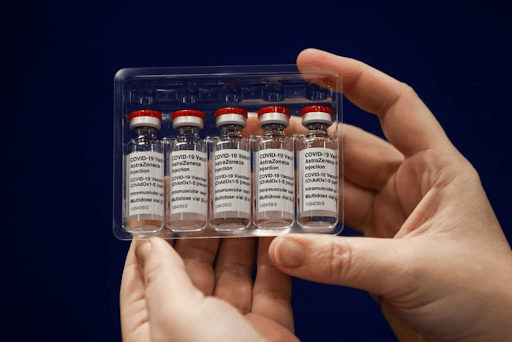South Africa, which is now representing an immense majority of cases, has initially declared a delay in the introduction of a million doses of AstraZeneca vaccine. Officials across the globe endorsed the Covid-19 vaccine AstraZeneca, after a study showing that the variant now spread rapidly in South Africa had little effect on mild diseases. One of the key risks in this year’s global strategy to come out of the pandemic is the possibility that new virus variants may grow the capacity to elude vaccines.
A pause for rollout of one million doses of AstraZeneca vaccine was declared in South Africa, where new variants now constitute a large majority of instances. However, on Monday, it said that it will still “stepped manner” enforce it, dispense 100 000 doses and track whether hospitalizations and deaths are avoided.
Richard Hatchett, CEO of the Alliance for Disease Preparedness Technologies, a foundation that co-leads the global COVAX initiative for the distribution of vaccine doses in developing countries, said: “It’s too early to revoke this vaccine. The vast majority of dosages that COVAX plans to start distributing in a first step in developing countries starting as soon as this month form more than 330 million doses of AstraZenecan vaccine.
“Obviously the world is full of the wild type virus that this Astrazeneca vaccine is known to work against,” Hatchett said. The co-chair of the COVID 19 Ministry Consultative Committee in South Africa, Professor Salim Abdool Karim, said it was too soon to say that AstraZeneca is not preventing severe disease caused by the variant that is prevalent in Southern Africa.
If the vaccine fails to cope well with new emerging virus strains, it may also be an ominous indication of other vaccines, demonstrating that the virus could potentially complicate scientists’ efforts to combat it. The message from the WHO and others was, don’t be panicking. Several global health officials pointed to the smallness of the South African research and checked the vaccine between first and second doses within a limited time span of four weeks, although there has since been evidence that it works best if there is a longer delay.
“more and more clear, the longer the interval between the two doses the higher the efficacy,” says Kate O’Brien, head of the World Health Organization’s immunisation unit. In the South African trial, the lead investigator said that Reuters claimed the vaccine was a crucial factor for African and foreign vaccines and that the one million doses expired in April in South Africa should be rapidly, not lost.
Western governments sponsored the vaccine, which many endorsed. The vaccine is the major cornerstone of the vaccination programme in Britain, which has been the quickest to vaccinate members of the public of any large country to date. The vaccine has been shown to function against several of the other rapidly spreading version.
The British Premier Boris Johnson has confirmed to reporters “We think that both the vaccines that we’re currently using are effective in, as I say, in stopping serious disease and death,” The UK uses Pfizer’s vaccine as well. The AstraZeneca vaccine offered adequate protection against “nearly all the variants” of the virus. Olivier Veran, Minister of Health of France, hoping the Vaccine specified a programme that lagged behind other rich countries.
But if vaccines do not perform as well with new and emerging variants, the world will face a far more costly and longer fight against the virus. In at least 40 countries, including the United States, the dominant version in South Africa is in circulation. In response to an outbreak of the South African variant, Austria has warned against non-essential travel to Tyrol’s alpine province. Cases north of Paris were also discovered, forcing the closing of one school.
Inputs from businesstoday




